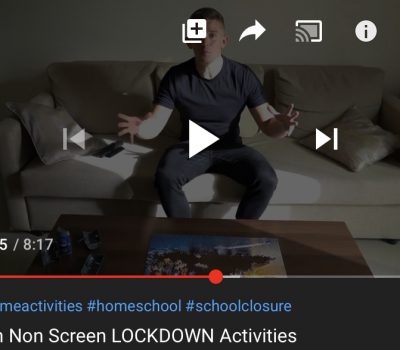

When I think back to the moments that I remember most vividly about teachers at school, it is the small interactions that you wouldn’t necessarily think mean anything at the time. Those moments are the ones where you feel like an individual, and that teacher knows you as an individual rather than just another student. They may not seem poignant at the time, but looking back, they are something that I am really appreciative of.
I have recently seen some contrasting views online about this. Some people going more than the extra mile for their form, and some people shunning the idea of spending any extra time with their pupils.
I love a poll on Twitter, and I completed a couple about form tutors. Nearly half of the people who responded really liked being a form tutor, but those who contributed also gave an insight into to why they voted as they did. Time. Since becoming a teacher I’ve realized how quickly that time passes. We have a long list of tasks everyday and sometimes being a form tutor on top of this can seem like an extra task, dare I say a hassle.

We only see our tutees for twenty minutes a day, and I think that we can underestimate the effect that we can have on them. I did not realize the impact that you can really have on students without realizing until one event happened. One boy had gotten in trouble for climbing on a roof after school. He was in isolation, and I went to speak to him. He started crying and I thought that this was because of his sanction, but he told me it was because he felt he had disappointed me. This was really striking to me, that a twelve-year-old felt the worst thing about getting in trouble was disappointing a teacher.
When the students come to us in year seven, you are their first point of contact. The first face that they feel that they can go to, and I think that this is crucial for some students. There is often the term banded around about the invisible child, the student who goes from lesson to lesson but doesn’t actually interact with the teachers. Form time can be a time when the academic pressure of school is released, the students don’t feel the pressure of normal lessons, so they may feel they are more able to talk to you as an adult, they can be more relaxed in your presence. You can make them feel valued, build their self-esteem. After all, if you do focus on having positive relationships with students you’re teaching life is so much more difficult.
Personally, I have been a year seven form tutor for the past few years. This has been great, you already know a good portion of the year group before you even talk about teaching. Even if you don’t follow that specific form through the school, you have built the basis of those relationships, you are still an approachable figure, you know them, they know you. By relationships I don’t mean an extra friend, I mean a relationship where the student knows the boundaries, knowing the boundaries and adhering to these doesn’t mean that you have to be cold towards them. Warm-strict is the popular term for this! This helps when you come to teach them, reason with them, or interact with them in any way inside or outside of the classroom.
We’re lucky enough in my school to have a fairly flexible form time schedule, with Fridays dedicated to ‘fun’ activities. These are the best, in my opinion, you get to show that you are human, not just a robot who stands at the front of a classroom all day. This is where I think relationships are really strengthened, and not just with one teacher. This trust that my school puts into form tutors helps in so many ways, especially when you have a supportive school, where even the headteacher will pop in for a game of ping pong (ours is formidable, not that the students, or I, would think it looking at a small lady in her mid 50’s), or other members of SLT will pop in whilst we do science experiments and have their hands set on fire.
So why am I hyping up the importance of form tutors? The world is a confusing place for teenagers. They have more pressure put on them than any generation in the past, and this is coming from multiple angles. Some are incredibly introvert and may go whole days without talking to an adult in school. Some may not have much interaction at home for various reasons. So with you being there for them, being that level of consistency, seeing them as an individual, not just another student, it is a massive boost for them. No matter what people say, it makes everyone feel good if they know they are liked, and as a form tutor, you are in a position to do this for the children who you spend those crucial twenty minutes a day with. As a form tutor, you don’t know how much of an impact that your actions can make, even if they seem forgettable to you. You are much more than just somebody to take a register and pass on messages.